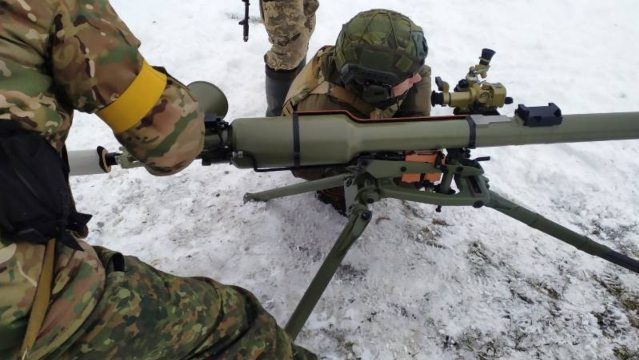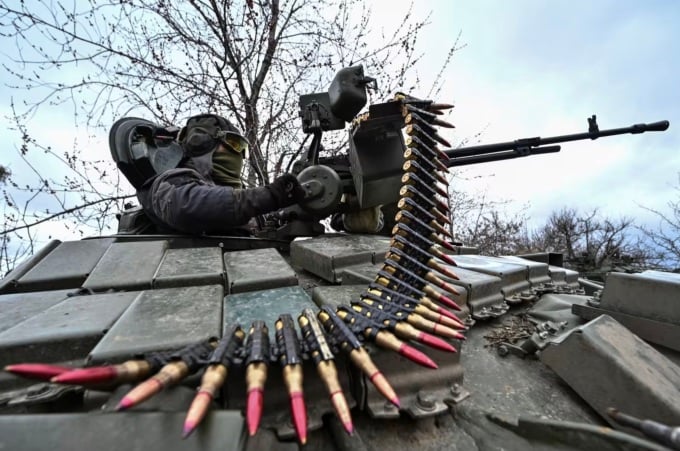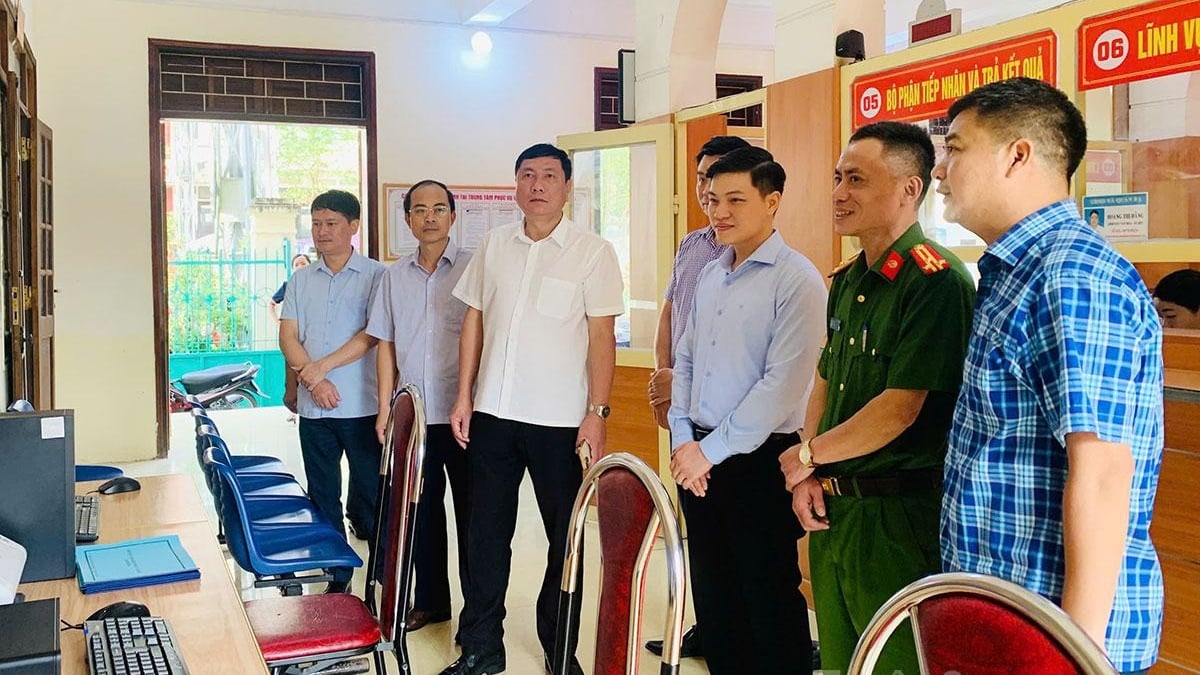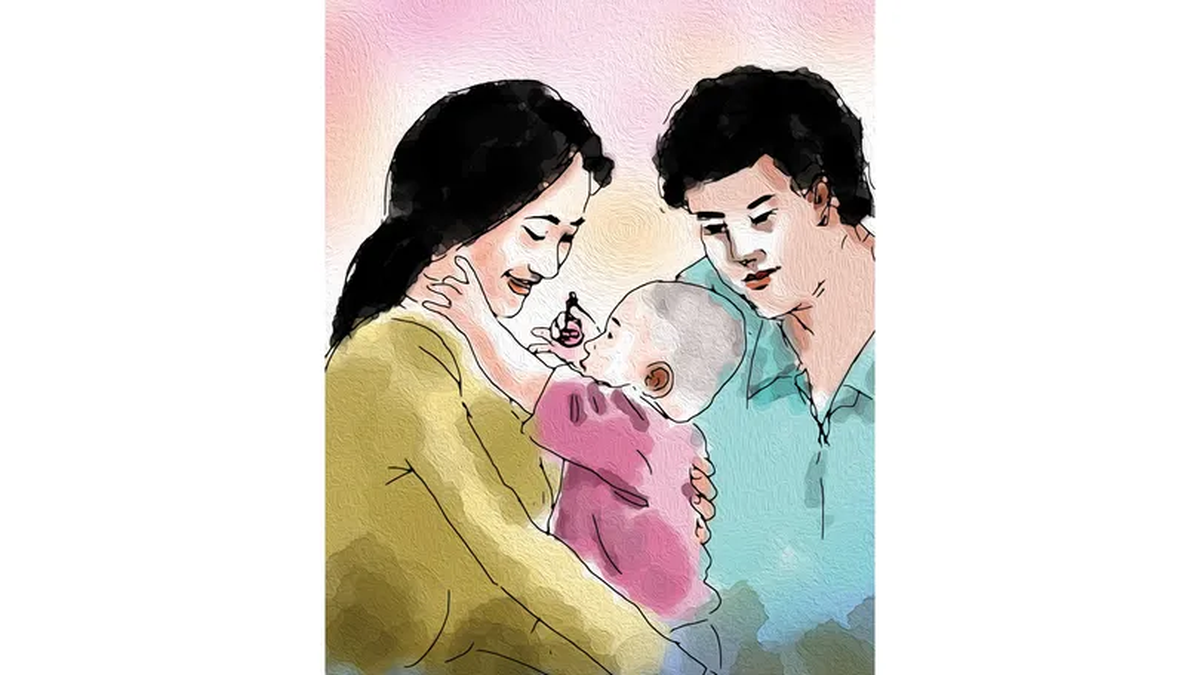Bulgaria could help fill Ukraine's arms shortage, as Western allies struggle to provide military aid to Kiev.
The Bulgarian government is gradually adjusting its pro-Ukrainian strategy and leaning more clearly towards the West, even though this Eastern European country was once heavily influenced by Moscow and its people have a lot of sympathy for Russia.
Prime Minister Nikolay Denkov announced the delivery of 100 armored vehicles to Ukraine in July, just a month after the Bulgarian parliament approved a new cabinet. It was also the first time Bulgaria has publicly disclosed its defense aid to Ukraine, after more than a year of secretly supplying ammunition to Kiev.
Defense Minister Todor Tagarev said Bulgaria had a responsibility to support Ukraine because Russia had "destroyed the international security architecture" by launching hostilities in its neighbor.
"Ukraine standing firm against Russia, restoring its sovereignty and territorial integrity is also in Bulgaria's strategic interests. This is a key issue for the stability of Europe, especially Eastern Europe around the Black Sea," Tagarev said.

Ukrainian servicemen operate a Bulgarian ATGL-H anti-tank gun on the eastern battlefield in December 2022. Photo: BulgarianMilitary
According to revelations from former Prime Minister Kiril Petkov and former Finance Minister Assen Vassilev, about 30% of Ukraine's ammunition needs and 40% of diesel fuel in the early stages of the war were supplied by Bulgaria.
The aid policy was carried out in secret, with private companies acting as intermediaries. Ammunition and fuel were delivered directly to Ukraine or via NATO member states. These contracts were paid for by the UK and the US on behalf of Ukraine.
Petkov said Bulgaria also proactively opened its airspace for aid to Poland and facilitated the transport of weapons by road from Romania or Hungary.
Bulgaria was also one of the first Eastern European countries to receive MiG-29 fighter jets from Ukraine and its allies, but no agreement was reached. NATO and Bulgaria assessed that the country needed to preserve its fighter jets to ensure national security and defend NATO's eastern flank.
The country's defense industry, including both the private and state sectors, has doubled its output over the past year, as Bulgaria increases defense assistance to Ukraine, Economy Minister Bogdan Bogdanov said.
One of the orders that Bulgaria is preparing to transfer to Ukraine is 5B55P missiles for the S-300 air defense system. The Bulgarian parliament confirmed that these missiles are defective and cannot be operated, but Ukraine can dismantle them to get spare parts and components for missiles it already has.
In addition, images released by the Ukrainian military over the past year show that Bulgaria has also supplied its neighbor with a number of weapons, including anti-tank guns, grenade launchers, binoculars, and anti-personnel and anti-personnel mines.
Support from Sofia is crucial for Kiev at a time when Western support is at risk. Its biggest ally, the United States, is distracted by Israel’s war in the Gaza Strip and Middle East tensions, while the US House of Representatives is reconsidering the scale of aid to Ukraine. Meanwhile, the governments of Slovakia and Hungary are holding back the level of EU support for Ukraine.

Ukrainian servicemen check the machine gun of a tank during training near the Zaporizhzhia frontline on March 29. Photo: Reuters
Therefore, Bulgaria's abundant Soviet-era arsenal and large-scale defense industry could make it the key to quenching Ukraine's thirst for weapons, as the war drags on and Western support dwindles.
However, Prime Minister Nikolay Denkov's administration will need to be very skillful in both supporting Kiev and avoiding the political risks of "angering" Moscow.
Defense Minister Tagarev acknowledged that a significant part of the Bulgarian population still has pro-Russian views. Many Bulgarians still credit Russia with liberating them from the Ottoman Empire in the 19th century. Economically, the Eastern European country has not been able to escape its dependence on Russian oil and gas.
Sofia-Moscow relations still have considerable influence on Bulgarian politics. President Rumen Radev maintains a pro-Russian stance. He has criticized Kiev for "stubbornly waging war" but has forced Europe to pay the full cost. Some pro-Russian voices in Bulgaria have argued that limiting aid to Ukraine is a way to speed up peace negotiations and restore stability to Europe.
Prime Minister Denkov's administration said that President Radev's statements did not represent the position of the government and the ruling coalition, or more broadly the EU and the NATO military alliance. According to Mr. Tagarev, in the Bulgarian political system, all defense, security and foreign policy are decided by the government and the Prime Minister, while the President has a very limited role.
"The cabinet decides everything and the cabinet's position is different from the president's," Tagarev asserted, adding that the government did not discuss the entire defense aid plan for Ukraine with Mr. Radev.
In addition to political obstacles, Bulgaria must also consider its own defense priorities before considering increasing military aid to Ukraine. The Eastern European country is concerned about Russia’s moves in the Black Sea, as well as the increasingly unpredictable regional security situation following the outbreak of hostilities in Ukraine.
Defense Minister Tagarev said modernizing Bulgaria's military was his top priority. Bulgaria has held five elections in the past two years, and only in June did it form a stable ruling coalition and cabinet. Bulgaria has therefore left many defense issues stalled during two years of political turmoil.
He said that the Bulgarian military modernization plan is facing many challenges, "seriously affecting its combat capabilities". Bulgaria is considered the least developed economy in the EU and does not have enough budget to modernize its army to meet NATO standards.
However, Bulgaria's defense minister said his country was "working on all possible options" to supply Soviet-era weapons to Ukraine. Ukraine's defense industry is currently focused on small arms, guns and ammunition.
"The government creates conditions for private companies to buy and sell independently. They will sign contracts themselves and find ways to bring products to Ukraine," he said, adding that Bulgaria's industrial output has increased two to three times over the past year, with defense exports accounting for the majority.
Thanh Danh (According to Kyiv Independent, BulgarianMilitary, Guardian )
Source link



























![[Photo] National Assembly Chairman Tran Thanh Man visits Vietnamese Heroic Mother Ta Thi Tran](https://vphoto.vietnam.vn/thumb/1200x675/vietnam/resource/IMAGE/2025/7/20/765c0bd057dd44ad83ab89fe0255b783)








































































Comment (0)